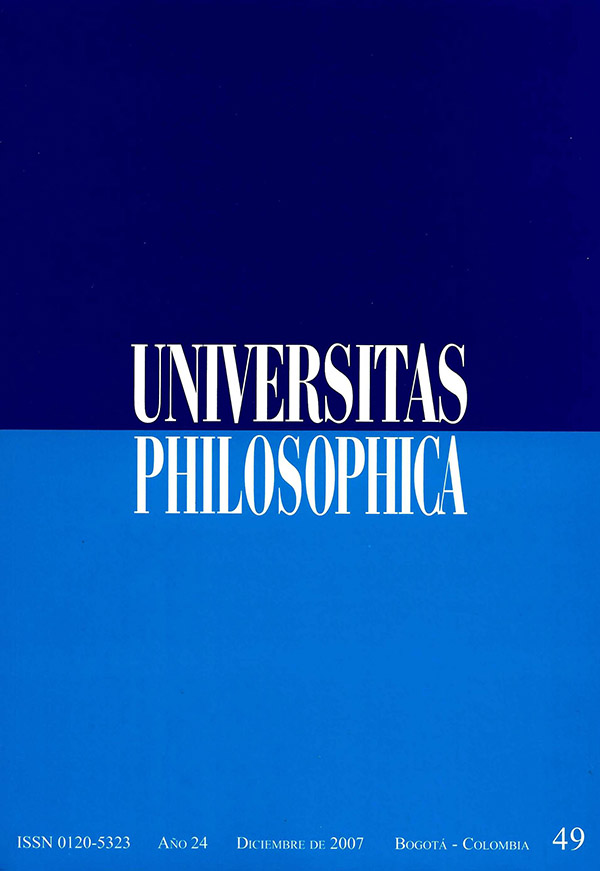Abstract
The Colombian Regeneration (1886-1900) found in the political and intellectual trajectory of Miguel A. Caro one of its main references. The present article traces a triple critical approach to its philosophical work, always marked by the rejection of liberalism and the inheritance of the Enlightement, as well as by the fidelity to an ultra-conservative Catholicism and an against revolutionary vision of politics. It is revised, firstly, Caro’s foundation of knowledge, trying to reconcile certain rationalism with the subordination to the religious authority. In the second place, his conception highly confessional of the State, manifested for example in his vision of the cults and teaching freedom. Finally, his conception of the national identity, inspired on the cultural tradition of the colony and its continuity under the political processes of the emancipation, will be explored.This journal is registered under a Creative Commons Attribution 4.0 International Public License. Thus, this work may be reproduced, distributed, and publicly shared in digital format, as long as the names of the authors and Pontificia Universidad Javeriana are acknowledged. Others are allowed to quote, adapt, transform, auto-archive, republish, and create based on this material, for any purpose (even commercial ones), provided the authorship is duly acknowledged, a link to the original work is provided, and it is specified if changes have been made. Pontificia Universidad Javeriana does not hold the rights of published works and the authors are solely responsible for the contents of their works; they keep the moral, intellectual, privacy, and publicity rights.
Approving the intervention of the work (review, copy-editing, translation, layout) and the following outreach, are granted through an use license and not through an assignment of rights. This means the journal and Pontificia Universidad Javeriana cannot be held responsible for any ethical malpractice by the authors. As a consequence of the protection granted by the use license, the journal is not required to publish recantations or modify information already published, unless the errata stems from the editorial management process. Publishing contents in this journal does not generate royalties for contributors.


